Search Images
Browse Content (p. 1673)
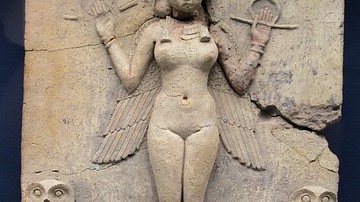
Image
Queen of the Night Plaque
The Queen of the Night (also known as the Burney Relief) is a high relief terracotta plaque of baked clay, measuring 19.4 inches (49.5 cm) high, 14.5 inches (37 cm) wide, with a thickness of 1.8 inches (4.8 cm) depicting a naked winged woman...

Image
Agora Film Poster
A promotional poster for the 2009 film Agora about the life of Hypatia of Alexandria (c. 370-415 CE).

Image
Eros Stringing His Bow
Marble statue of Eros stringing his bow. This statue is a 2nd-century CE Roman copy after a 4th-century BCE Greek original by Lysippos (Capitoline Museums, Rome).
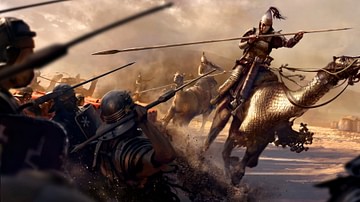
Image
Parthian Camel Cataphracts
This is an artist's illustration of how Parthian camel cataphracts may have looked like in combat against Roman legionaries.
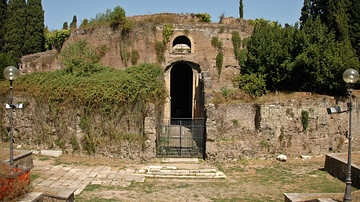
Image
Doorway, Mausoleum of Augustus
The Mausoleum of Roman emperor Augustus in Rome. Completed in 28 BCE and, reaching a height of almost 45 metres and a diameter of 90 metres, it would hold the record as the largest tomb in the Roman world.
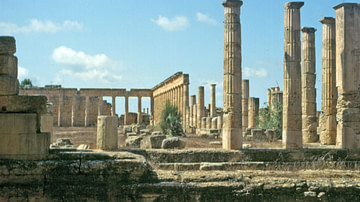
Image
Ruins of Cyrene
Archaeological site of Cyrene, Libya.
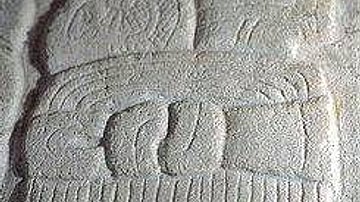
Image
Maya Tikal Glyph
The Maya glyph for Tikal. From a stela in the Archaeological Museum of Tikal.
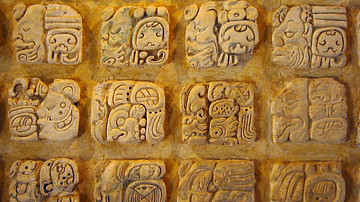
Image
Mayan Glyphs
Examples of glyphs used in the Maya writing system. Maya glyphs are placed in columns and are read from left to right in rows of two. From the Archaeological Museum of Palenque, Mexico.
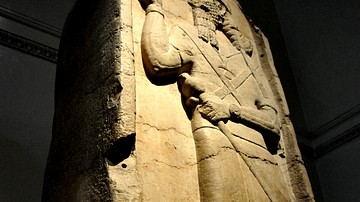
Image
Stela of King Shamshi-Adad V
Stela of the Assyrian king Shamshi-Adad V (r. 824-811 BCE), from Nimrud (ancient Kalhu), modern-day northern Iraq, Neo-Assyrian Empire, 824-811 BCE. It depicts the king, before the symbols of his principal gods. He extends his right hand...
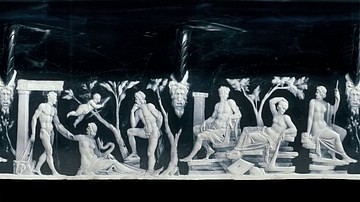
Image
Portland Vase Scene Panorama
A panoramic view of the scene decorating the celebrated Portland Vase. The exact significance of the scenes are not known but many scholars believe the vase to show scenes from the wedding of Peleus and Thetis from Greek mythology. 1st century...